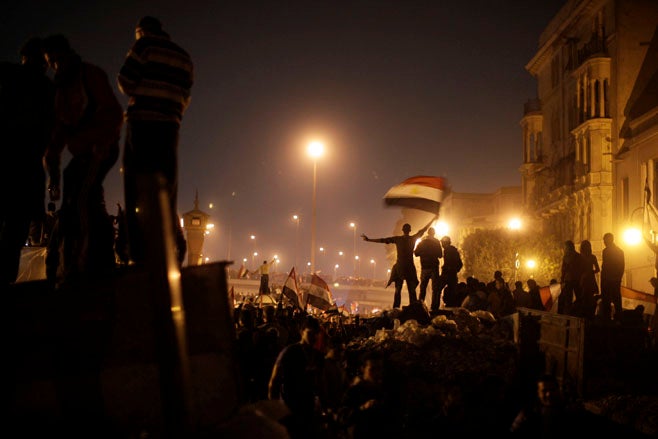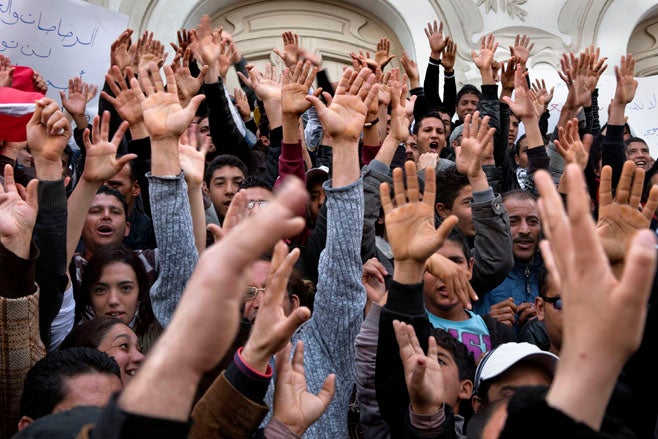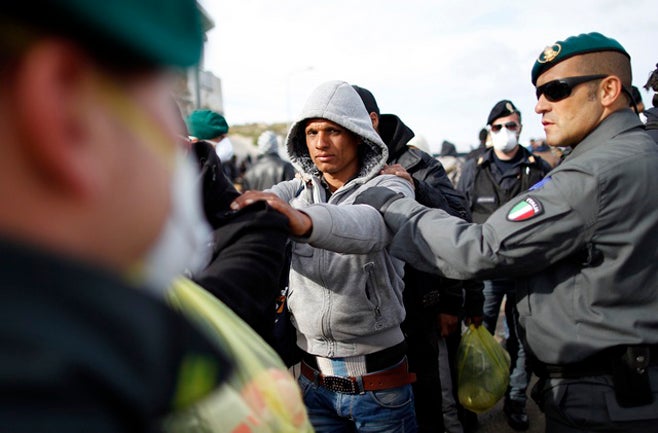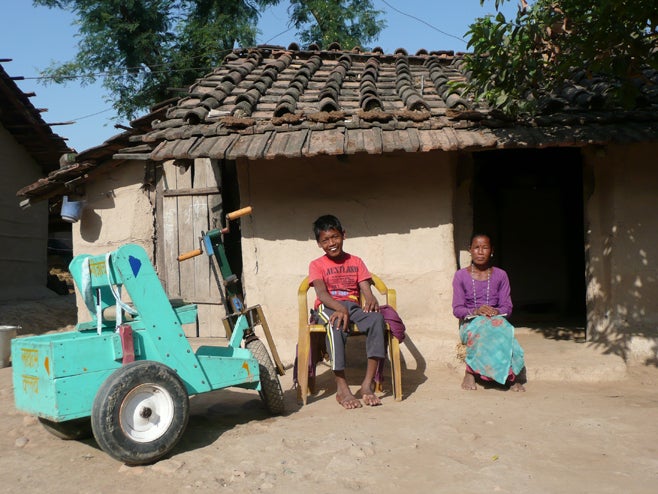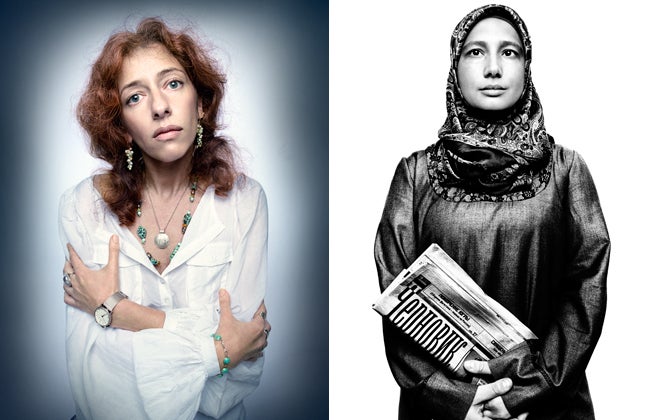Nepal's political and peace processes remained stalled in 2011, resulting in instability; weak governance; and no progress on accountability for the killings, enforced disappearances of civilians, and other abuses that accompanied Nepal’s civil war between 1996 and 2006.
Prime Minister Jhala Nath Khanal resigned on August 14, citing his failure to resolve the constitutional stalemate and his desire to make way for a consensus government. On August 28, days before the expiration of the mandate of the Constituent Assembly, Baburam Bhattarai, a senior member of the United Communist Party of Nepal-Maoist (UCPN-M), was elected prime minister. He became the second member of his party to head the government since the 2008 elections.
In a last minute deal political parties extended the term of the Constituent Assembly by three months until the end of November. Next steps were not clear at this writing: the Supreme Court ruled in November 2010 that the Constituent Assembly mandate could not be extended by more than six months absent exceptional circumstances and the declaration of a state of emergency, although the court has subsequently backed away from this position.
On November 1 the parties announced an all-party agreement laying out the terms for integration of Maoist combatants into the Nepal Army and for the rehabilitation of others, an issue that has long been at the core of the stalled peace process.
The government has made little progress in realizing economic, social, and cultural rights, and reports of lawlessness persist in many parts of the country, especially in the Terai and eastern hills. Armed groups and ethnic organizations have been involved in killings and extortion with impunity.
Accountability for Past Abuses
The government and political parties have consistently failed to muster the will to establish accountability for even egregious wartime human rights violations. Not one person has been held criminally responsible for such crimes. In many cases, those accused of violations actively receive protection from security forces or political parties.
In August Prime Minister Bhattarai announced that the government was willing to offer amnesties for rebels and government soldiers alike. A formal agreement between the UCPN-M and its coalition partner, the United Democratic Madhesi Front (UDMF), called for the withdrawal of criminal cases against individuals affiliated with the Maoist party and with the Madhesi, Janajati, Tharuhat, Dalit, and Pichadabarga movements. It also declared a general amnesty that could include serious crimes and human rights abuses. The Maoist party's “Commitments and Proposal Concerning Government, the Peace Process, and the Constitution,” made public on August 25, contained a near identical provision. Although the prime minister subsequently backed away slightly, saying he only intended to withdraw “politically motivated” cases, he failed to state what exactly that means or who would make the determination. The November 1 all-party agreement is vague on what will happen to wartime cases.
Previous governments have expressed a similar desire to withdraw such cases. Then-Home Minister Krishna Bahadur Mahara indicated in May 2011 that he was inclined to withdraw the case against UCPN-M Central Committee member Agni Sapkota. Sapkota, a Constituent Assembly member, was a cabinet minister from May to August 2011 even while he was under investigation for the April 2005 abduction and killing of Arjun Lama.
On October 2, in what is feared will be the first in a string of amnesties, the cabinet pardoned Balkrishna Dhungel, a Constituent Assembly member whose conviction for the 1998 murder of Ujjwal Kumar Shrestha was confirmed by the Supreme Court in January 2011. The UCPN-M protested the conviction, claiming that the case was counter to the spirit of the Comprehensive Peace Agreement and the interim constitution.
Draft bills to establish a Truth and Reconciliation Commission and a Disappearances Commission have been tabled in parliament but await debate by the Statute Committee. While the bills are a step towards ensuring justice for war victims, several of their provisions are inconsistent with international law.
Integration of Maoist Combatants
For more than four years, 19,602 former Maoist combatants have been held in United Nations-monitored cantonment sites. In January 2010 the process began to discharge a further 2,973 individuals recruited as children and 1,035 recruited near the end of the civil war.
A UN monitoring mechanism was formed in 2011 to scrutinize UCPN-M compliance with the terms of a 2009 action plan it agreed to with government and UN representatives, including a ban on recruitment of children.
A special committee established in mid-2009 to address the integration of Maoist combatants into the security forces was unable to function for several months due to the continuous absence of UCPN-M representatives from meetings. The November 1, 2011, agreement calls for the establishment of a new special committee to oversee the integration of 6,500 Maoist combatants into the Nepal Army in non-combat roles. The remaining combatants, who have chosen not to join the Nepal Army, will receive compensation and rehabilitation.
Dalits
Dalits ("untouchables") suffer from endemic discrimination, especially in the economic, social, and cultural spheres. In September 2009 Nepal announced its support for UN-endorsed guidelines on the elimination of caste discrimination. However, Nepal has yet to implement recommendations made in 2004 by the Committee on the Elimination of Racial Discrimination, including the adoption of legislation enabling the National Dalit Commission—a state agency—to fulfill its mandate.
Sexual Orientation and Gender Identity
The Nepal government has made significant strides towards ensuring equality for lesbian, gay, bisexual, transgender, and intersex people (LGBTI) in recent years. Yet progress remains tenuous. The draft fundamental rights chapter of the constitution includes LGBTI rights but draft civil and criminal codes are extremely regressive and threaten to negate constitutional guarantees. According to local NGOs, Nepal has 280 discriminatory legal provisions affecting the LGBTI community.
The government’s promise that the 2011 national census would allow citizens to identify themselves as male, female, or transgender was a largely superficial gesture. Social prejudice and stigma, including on the part of census takers, resulted in gross undercounting of third gender individuals. And although individuals could identify as third gender on the census household survey, they could not do so on other census forms and almost no data was gathered on such individuals.
Another challenge is the ability of third gender individuals to have identity documents that accurately reflect their self-identified gender. Despite a 2007 Supreme Court ruling requiring that they be supplied with such documents—allowing them full access to state protections and benefits—only a handful of people have received updated cards. In September the prime minister and home minister promised to start issuing third gender citizenship identity cards, but no progress had been made at this writing.
Women's Rights
While women have constitutional guarantees of equality and strong representation in the Constituent Assembly, women and girls continue to face widespread discrimination. Trafficking, domestic violence, dowry-related violence, rape, and sexual assault remain serious problems. Sexual violence cases are often settled in private and, even when complaints are filed, police rarely carry out effective investigations. Women in the Constituent Assembly have formed a caucus to push for greater focus on women's concerns.
The millions of Nepalis who have migrated to the Middle East in recent years risk abuse at every step of the migration process, including imposed debts and deception during recruitment, labor exploitation and abuse abroad, and limited access to redress. The number of women migrating as domestic workers has significantly increased since a ban on such migration was lifted in 2010, and they face especially high risks given their exclusion from labor laws abroad. The government failed to comply with a requirement under the Foreign Employment Act of 2008 to place labor attaches in destination countries with a significant number of Nepali workers.
Tibetan Refugees
Tibetan refugees have faced increasing harassment as Nepali authorities grow increasingly responsive to pressures from China. Arrests, criminalization of entry, arbitrary detention, and forced return of refugees to China were reportedin 2011. In March the government banned Tibetans from celebrating during the Tibetan New Year. In August police arrested and briefly detained Thiley Lama, the Dalai Lama’s envoy to Nepal, and his assistant after they publicly asked for the inclusion of refugee rights in Nepal’s new constitution and the issuance of identity cards for Tibetans in Nepal.
In September Nepali authorities arrested more than 20 Tibetan refugees, including several children, for illegal entry. Pursuant to a “gentleman’s agreement” between the government and the UN High Commissioner for Refugees (UNHCR), authorities are to immediately hand over such refugees to UNHCR which is then to facilitate their onward progress to India. But these refugees were transferred to UNHCR only after a court intervened more than a week later.
Disability Rights
Children with disabilities in Nepal face diverse and imposing barriers to obtaining a basic education. Schools are physically inaccessible, teachers are inadequately trained, and some children are denied admission to neighborhood schools. Some also experience abuse and neglect at home and in their communities. These barriers result in low attendance and high dropout rates for children with disabilities compared with their non-disabled peers.
Key International Actors
After years of heavy dependency on India, Nepal increasingly has attempted to strengthen ties with China, its other powerful neighbor. In March China provided military aid of about US$19.8 million, and helped build military medical facilities.
India played a positive role in bringing about the Comprehensive Peace Agreement that ended Nepal’s 10-year civil war but was subsequently accused of meddling in Nepal’s selection of a prime minister, adding to political instability. The Indian government maintained an overt distance from Nepal’s political turmoil in 2011.
Nepal is dependent on aid and relies heavily on its traditional donors, such as Japan, the United States, the United Kingdom, India, and the European Union. The US and UK provide significant military assistance to Nepal, though US aid continues to be restricted on human rights grounds. Resumption of full US military aid is contingent on Nepali military cooperation with civilian investigation and prosecution of security force abuses. The UCPN-M remains on the US list of banned terrorist organizations.
Nepal continues to be a major troop contributor to UN peacekeeping missions. The UN announced in July that the Office of the High Commissioner for Human Rights (OHCHR) field office in Kathmandu, the capital, would close as of December 2011. The status of the office has been in dispute since 2009, with the government whittling down its terms of reference and extending the UN in-country presence on only a six monthly basis. At this writing it remained unclear whether OHCHR will pull out or seek a timed phase-out contingent on the government meeting required benchmarks.
